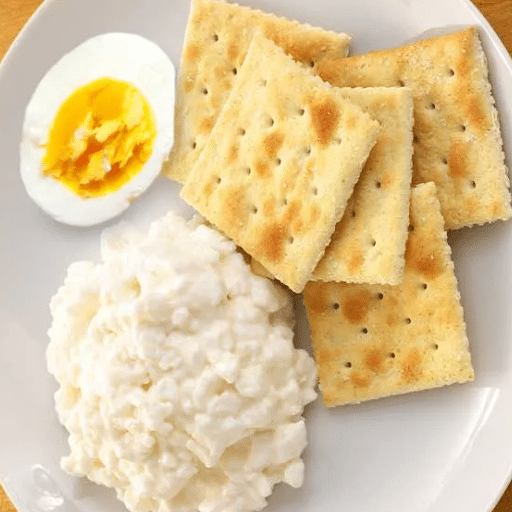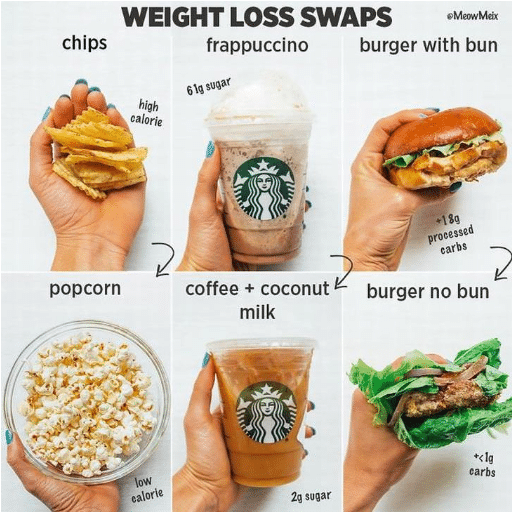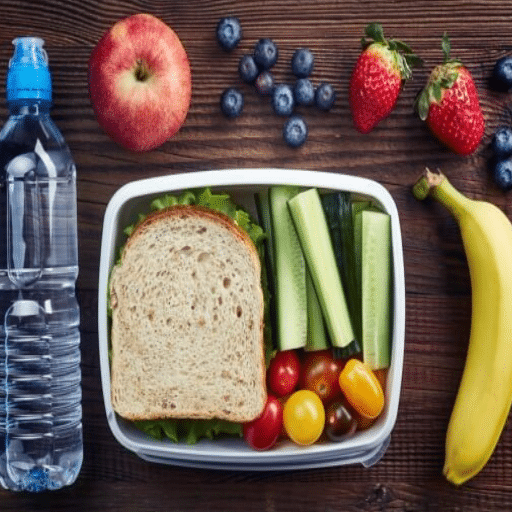It is essential to keep safety and sustainability in mind while losing weight; therefore, here is an efficient combination of science, consistency, and discipline, which go hand in hand. This guide aims to help you with interacting strategies to achieve the target of losing 10 pounds within a week. The framework explained in this article includes dieting, exercising, and crucial lifestyle shifts in a focused manner. The magic bullets, which consist of increased water intake, improved sleep quality, and an optimized metabolism,m are also included for best results. You need not only to adhere to these techniques for strategies for weight loss but to healthy habits that assist in lifelong wellness.
Is it Really Possible to Lose 10 Pounds in a Week?

Understanding Rapid Weight Loss: Fact vs. Fiction
With the right approach, a 10-pound loss is achievable in a week although, for most people, it requires rather extreme measures. These measures are neither sustainable nor pleasant. However, considering factors like body composition and height can make a weekly weight loss of 10 pounds understandable. That said, most of the rapid weight reduction is a combination of losing water weight, glycogen, and possibly even lean muscle mass. Losing weight in this manner is hardly ever recommended. Instead, focusing on a caloric deficit coupled with physical activity dictates the importance of prioritizing health. Losing weight while nursing an injured metabolism and malnourished body is never ideal.
The Science Behind Losing 10 Pounds in a Short Duration
Having lost 10 lbs in a short duration, I can confirm that reaching such a target is always possible but heavily revolves around certain scientific and practical principles. Some well-known sources state that achieving this can be done through the most effective method: creating a caloric deficit with an adequate diet of whole foods, cutting back on modern sugar and refined carbohydrate processed foods, and increasing protein to keep lean muscle mass. Additionally, regular exercise, including predisposed HIIT and strength training, can accelerate the burning of calories and improve the metabolism. Moreover, it is equally important to focus on drinking enough water, lowering stress, and getting enough rest, supporting overall health without undermining fat loss. Above all of this, proper expectations should be kept because losing weight too fast without the ability to sustain a healthy long-term lifestyle can prove to be complicated.
Impacts of Losing Weight at a High-Speed
By dividing it into appropriate sections, I determined that the adverse effects of rapid weight loss are pretty alarming. The first would be muscle loss, as many people tend to convert muscles to energy rather than fat. This is dangerous for one’s overall strength and metabolism. The second would be muscle loss, which comes from fad diets. Eating less than prescribed or obssesively exercising leads to calorie restriction which inevitability results in losing so much energy that all muscle gets replaced by fat.. Another negative consequence is the formation of gallstones, which are more likely to develop when the fat is broken down too quickly. Unfavorable methods of losing weight can result in stringing the heart and organs, which is highly stressful on the body. These factors underline the importance of methodically and gradually approaching weight loss.
What is the Military Diet and How Does it Work?

Breaking Down the Military Diet Plan
This particular plan is called the “Military Diet.” It is a 3-day diet that claims to assist in weight loss. The diet restricts foods and utilizes low-caloric meals in portions that create a caloric deficit. Simple, cheap foods like toast, eggs, tuna, and a small quantity of fruit and vegetables are the only allowed food items. After three days of fasting, partakers are urged to consume a moderate diet for the next four days. This eating pattern is supposed to allow people to lose 10 pounds in a week. On the other hand, some professionals believe this dieting is unsustainable in the long run as it does not facilitate weight loss of more than a few pounds. And if there is any weight loss it is most likely just water weight.
Why Use Caloric Deficits? An Overview Of The Military Diet
The military diet entails an energy imbalance that forces individuals to reduce their caloric intake within specific periods, say, three days, while the remaining days allow them to eat whatever they want. As a result, the body is forced to consume its glycogen stores. My research discovered that this diet comprises specific meal combinations with low-caloric food to achieve maximal temporary weight loss. However, the loss is typically due to losing a lot of water and glycogen, which does not help long-term fat loss. Moreover, such extreme dieting may not be practical, and further research must be done on the impact on long-term health.
Is the Military Diet Safe and Effective?
My research indicates that the military diet is quite dangerous and ineffective for long-term weight loss. While a person may lose some weight in the short term, the incessant need to restrict can result in significant health risks. Add to this a lack of scientific proof for the weight management approach, and the military diet can indeed be termed unhealthy. Balanced diets, on the other hand, do take longer to show results but tend to be healthier in the long run.
What are Healthy Alternatives to Lose Weight Quickly?

Intermittent Fasting: A Viable Lifestyle
Intermittent fasting is one of the most effective and scientifically supported approaches toward handling weight. It allows you to cycle between eating and fasting, which helps regulate calorie intake without severe restrictions on certain food groups. As a result, it significantly improves metabolic health, enhances insulin sensitivity, and helps with fat loss. By focusing on fasting schedules like the alternate-day fasting or the 16/8 method, you can easily align these methods with your lifestyle, allowing weight loss goals to be achieved healthily.
High-Protein, Low-Carb Diet Plans
Based on the most recent research, high-protein, low-carb diet plans focus on dramatically reducing carbohydrate intake while increasing protein consumption to burn fat while sustaining muscle mass. They improve blood sugar levels, enabling the body to use fat as the primary energy source and thus, boosting weight loss. The Atkins and keto diets are popular approaches that emphasize non-starchy vegetables, lean meats, eggs, and other healthy fats while limiting grains, sugary foods, and high-carb vegetables. It is crucial to seek professional advice to ensure that the body remains well-balanced while providing maximum effectiveness.
The Influence of Water Consumption on Weight Loss
From my observations, water intake is among many other factors that aid in weight loss. Drinking an appropriate amount of water increases metabolism and digestion and reduces appetite. In many cases, people eat when they are actually just thirsty, and staying hydrated can stop such instances of overeating. Moreover, water helps move nutrients around and excrete waste, which is extremely important during weight loss. Today, many people understand that maintaining sufficient hydration is necessary for good physical work, which leads to enhanced calorie burning. You can achieve regular hydration simply by drinking water regularly throughout the day, which would assist in your weight loss efforts.
Can You Lose 10 Pounds in a Week Without Dieting?

Strategies to Optimize Weight Loss Through Lifestyle Changes
In an ideal world, it is feasible for one to shed 10 pounds in just a week without subduing to conventional dieting methods. But to achieve this, one must adopt a different lifestyle, which would result in a lot of the weight loss being water weight as opposed to fat. With that in mind, I focus on severe sodium restriction, the elimination of highly processed foods, and a sedentary controlled environment, with my main form of exercise being HIIT. Additionally, it would be prudent for me to focus on consuming adequate amounts of water and obtaining sufficient amounts of sleep to help mitigate water retention and improve metabolism. That being said, such measures to lose weight cannot be maintained over long periods, so doing it at a more controlled and balanced pace would be easier on the body.
The Impact of Sleep on Weight Loss
Sufficient sleep is essential to shed excess pounds because it directly correlates with hormonal fluctuation and energy use. Because of my research, I now know that lack of sleep increases ghrelin, the hunger-inducing hormone while suppressing leptin, which signals fullness, which leads to more food consumption among people. Other factors, such as poor sleeping patterns, worsen insulin sensitivity and increase fat storage. On the other hand, recently reviewed studies indicate that those who are well-rested tend to have relatively higher energy levels and are more able to lead an active lifestyle and keep up with exercise regimens. In my case, I invest quality 7-9 hours of good sleep every day to aid my weight loss drills and recover well after the exercise.
Stress Management and Weight Loss
Managing stress is an essential consideration for weight loss, as persistent stress leads to the increased secretion of cortisol. This hormone stimulates appetite and promotes fat accumulation, particularly in the abdominal region. In the past, I found that stress control is effectively achieved using techniques such as mindfulness meditation, deep breathing, and exercise. Besides reducing stress levels, regular exercise is known to increase the secretion of endorphins, which are the body’s natural mood lifters. Stress can also be managed by maintaining a healthy lifestyle and diet, especially those containing leafy vegetables and omega-3, which are known to reduce inflammation and modulate its stress response. Effective stress management enables me to achieve my weight loss objectives by reducing emotional overeating and enhancing my metabolic rate.
What Are the Long-Term Effects of Rapid Weight Loss?

Metabolic Changes After Quick Weight Loss
In my research and understanding, an individual who attempts to lose considerable weight within a short time frame often experiences an accompanying slowdown in metabolic rate which is referred to as metabolic adaptation or “adaptive thermogenesis.” This state arises because the body is trying to preserve energy and maintain fat stores despite significant calorie deficits. Furthermore, muscle mass is also lost in quick weight loss, which decreases resting metabolism even more, because muscle consumes more energy than fat. Over time, these factors can make it easier for the individual to put on weight again and more difficult to keep weight off in the long run, which is why a more gradual approach to weight management is more effective.
Sustaining Weight Loss After a Crash Diet Program
When it comes to retaining lost weight after a crash diet, I believe that a systematic and practical approach is a prerequisite. To prevent the dreaded yo-yo effect, it is essential that calorie levels are gradual increased while still following only whole foods that are dense in nutrients. Exercise, especially resistance, should also be an integral part of the new routine to maintain muscle mass alongside a resting metabolism. Moreover, sizing dieting portions, drinking copious amounts of water, managing stress, and regulating eating cycles will help maintain weight. In conclusion, the most crucial change is moving away from quick remedial measures to a healthier, balanced way of life.
Healthy and Sustainable Weight Loss Strategies
Basing my understanding on available literature, it appears that achieving effective and sustainable weight loss is primarily a function of maintaining a modest calorie deficit through adequate nutrition and sufficient exercise. My focus is on unrefined, nutrient-dense foods, including lean meat, fruits, vegetables, grains, and oils, as these food types increase energy balance and promote satiety. Regular exercise, which includes aerobic and anaerobic workouts, helps in severe calorie restriction while enhancing personal fitness. Furthermore, I pay particular attention to cultivating sustainable behaviors like practicing mindful breathing, appropriate hydration, and obtaining quality sleep, as these factors, too, are essential when seeking lasting weight loss. The targets I strive for do not challenge my health since the changes are gradual rather than drastic. This makes it easier for me not to regain any weight later on.
How to Transition from Rapid Weight Loss to Healthy Living

Building Sustainable Eating Habits
While focusing on building sustainable eating habits, I pay particular attention to slow changes that I will truly be able to keep up with in the future. I adopt a balanced diet comprising fresh crops, whole grain cereals, healthy lean meat, and unsaturated fats while limiting added sugar and highly refined food products. Order is needed so I pay attention to what my body tells me and try not to eat beyond the limit. Pre-planned balanced meals work well in my routine as I ensure that there are healthy options for me to choose from. Finally, I believe in moderation and not perfection, like making space for an occasional treat, which makes my routine healthy and sustainable.
Incorporating Exercise into Your Regime
When creating a plan to exercise regularly, I begin by setting weekly goals and selecting exercises I know I will enjoy and stick to, such as strength training, walking, or riding a bicycle. The goal is set realistically at three to five workouts each week. I also build on it by slowly increasing the intensity and duration of my sessions. Tracking my progress is also essential, as it motivates me. Additionally, I maintain a consistent workout schedule which helps build a habit. To prevent boredom, engage different muscle groups, overtrain, or arrive at a plateau, I rest and recover and vary the routines I use. Most importantly, I make sure to prioritize consistency instead of perfection, ensuring my routine is achievable and is beneficial in the long run.
Reference sources
Frequently Asked Questions (FAQs)

Q: Does the military diet work for rapid weight loss?
A: While the military diet claims to help you lose weight fast, it’s not a sustainable or healthy approach to weight loss. Diets like the military diet may lead to short-term weight loss, but they are not associated with long-term success. Instead, focus on a balanced meal plan and healthy lifestyle changes for more sustainable results.
Q: What’s a safe and healthy meal plan to lose 10 pounds in a week?
A: Losing 10 pounds in a week is not considered healthy weight loss. A safe and sustainable approach is losing one to two pounds per week. Create a meal plan that includes a variety of nutrient-dense foods, control portion sizes, and aim for a moderate calorie deficit of 500-750 calories per day. This could help you lose weight healthily and sustainably.
Q: How many calories per day should I consume to lose 5 pounds in 1 week?
A: To lose 5 pounds in 1 week, you’d need to create a significant calorie deficit, which is not recommended for healthy weight loss. Instead, aim for a more realistic goal of 1 to 2 pounds per week by reducing your daily calorie intake by 500-750 calories. This approach is more sustainable and less likely to negatively impact your health.
Q: What are some effective ways to lose weight fast?
A: While it’s tempting to look for ways to lose weight fast, the most effective approach combines healthy eating and regular exercise. Some strategies that can help with weight loss include: increasing your water intake, consuming more protein and fiber, reducing processed foods, getting enough sleep, and incorporating both cardio and strength training exercises to burn fat and build muscle.
Q: Can drinking water help with weight loss?
A: Yes, drinking water can help with weight loss. It can increase feelings of fullness, boost metabolism, and help you burn more calories. Aim for at least 8 cups (64 ounces) of water per day. Drinking a glass of water before meals can also help reduce calorie intake. However, water alone is not a magic solution; it should be combined with a balanced diet and exercise for effective weight loss.
Q: What are some healthy snacks that can help me lose weight?
A: Incorporating healthy snacks into your diet can help you lose weight by managing hunger and providing essential nutrients. Some options include: 1 cup of mixed berries, Greek yogurt with nuts, carrot sticks with hummus, hard-boiled eggs, or a small handful of almonds. These nutrient-dense snacks can help you feel satisfied between meals while supporting your weight loss journey.
Q: Is losing 10 pounds in a week without harming my health possible?
A: Attempting to lose 10 pounds weekly is not recommended and could harm your health. Rapid weight loss can lead to muscle loss, nutritional deficiencies, and other health issues. A healthy and sustainable rate of weight loss is one to two pounds per week. If you want to lose weight, focus on making long-term lifestyle changes rather than seeking quick fixes.
Q: How can exercise help with weight loss in a week?
A: Exercise is crucial for weight loss and overall health. While it’s unrealistic to lose 10 pounds in a week through exercise alone, increasing physical activity can significantly contribute to weight loss efforts. Aim for cardio exercises to burn calories and strength training to build muscle. This can help boost your metabolism, burn fat, and support your weight loss journey healthily and sustainably.





